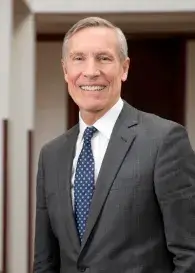
As I write this, I reflect on a spring that should have been a season of hope for a world slowly emerging from the grip of a devastating pandemic. And yet Russia’s unprovoked invasion of Ukraine has ushered in a new era of uncertainty and instability for the global order. While the suffering of the people of Ukraine should be foremost in our minds, the conflict also raises important questions about the future of the international system. What does the conflict mean for the future of nuclear arms control? What role does corruption play in the erosion of constraints against aggression? And what will the conflict mean for democratic institutions, both abroad and here at home?
In this issue of the Bulletin, you will find the Academy engaging with all of these key questions. The Academy’s project on “Promoting Dialogue on Arms Control and Disarmament” has convened discussions among scholars and practitioners from the United States, Europe, China, and Russia to explore key challenges to arms control, build international relationships, engage with policy-makers, and help shape the Academy’s future research agenda. In May, the Academy convened an exploratory meeting on “Checking Kleptocracy: Considering the Potential Establishment of an International Anti-Corruption Court.” Experts from around the world gathered at the House of the Academy to discuss a potential mechanism that would hold corrupt leaders accountable and thereby prevent the human rights abuses and international conflicts that are often the product of grand corruption.
The conflict in Ukraine has not only heightened concerns about threats to democracy abroad but has also made us even more sensitive to the threats we face here at home. In April, the Academy convened a group of experts, including Danielle Allen, E.J. Dionne Jr., María Teresa Kumar, and John Shattuck, to discuss the state of our fractured democracy and how Americans could come back together with a greater sense of common purpose. At the Academy’s first “Higher Education Forum at Aspen” in June, college and university leaders convened to discuss the role of higher education at a time of global crisis and how colleges and universities can support equity, free expression, social mobility, and democratic citizenship. And our Summer 2022 issue of Dædalus on “The Humanities in American Life: Transforming the Relationship with the Public” explores the role of the humanities in a twenty-first-century American democracy.
One of the highlights of the Academy’s spring was the presentation of the Don M. Randel Award for Humanistic Studies to Henry Louis “Skip” Gates, Jr. In conversation with David Rubenstein, Skip concluded his remarks by noting that “. . . we are all immigrants, even my African American ancestors. We are a nation of immigrants, but at the level of the genome we are 99.99 percent the same.” It is a thought well worth remembering at this time of division at home and conflict abroad. I hope you will read the pages that follow with interest and share your thoughts about how the Academy can work to bridge divides and build a more hopeful global future.
David W. Oxtoby